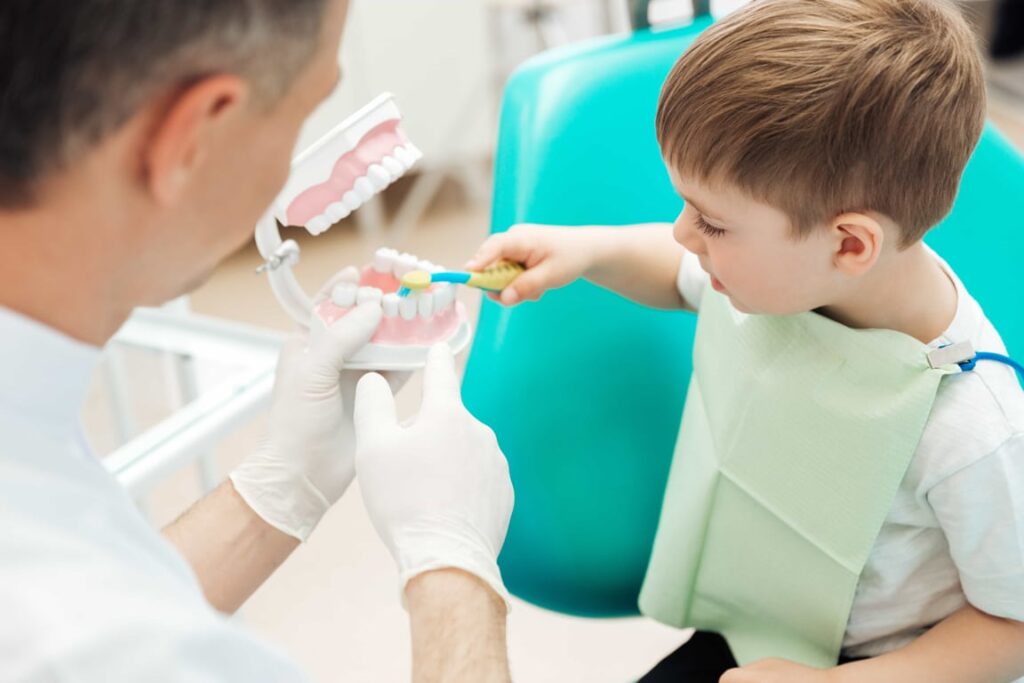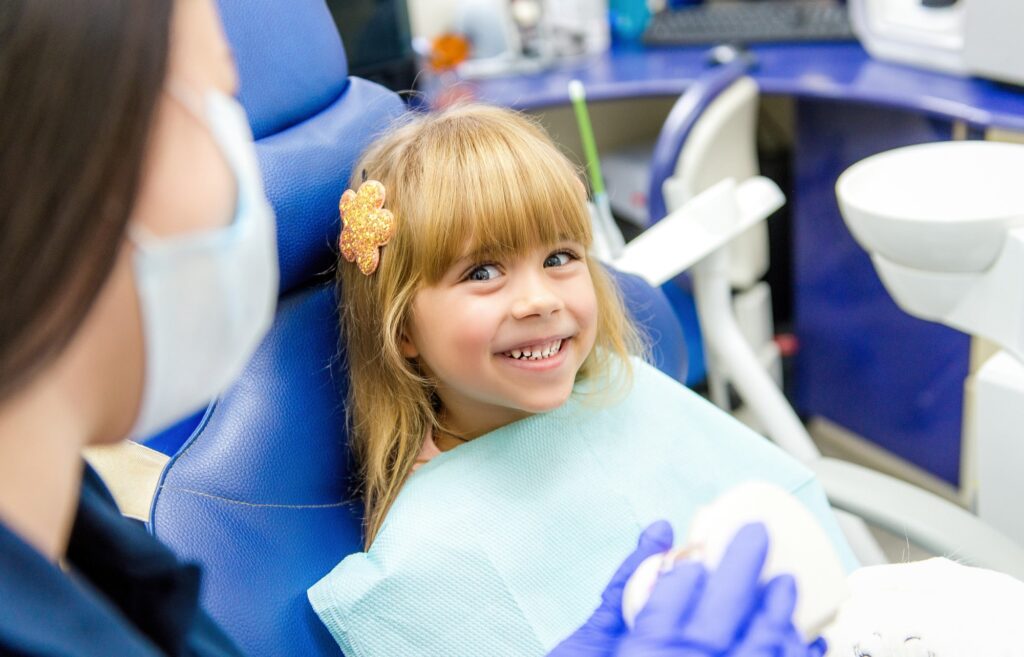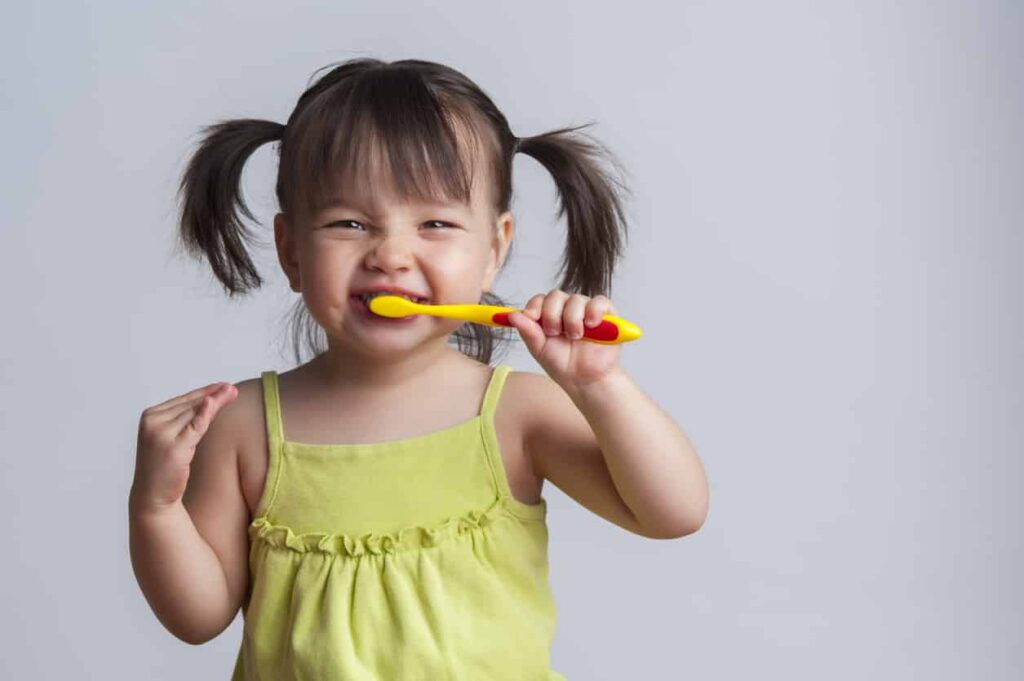
As a parent, it is crucial to prioritize your child’s oral health and establish good dental habits from a young age. Proper dental care can prevent cavities, gum disease, and other dental problems and ensure that your child’s teeth grow healthy and strong. However, many parents may not know where to start when it comes to dental care for their children.
This article will provide five tips for parents on promoting good dental health in children, including establishing a dental routine, encouraging healthy eating habits, and scheduling regular dental checkups. Whether you are a new parent or looking to improve your child’s dental care routine, these tips will help you promote good oral health and set your child up for a lifetime of healthy smiles.
Why is it important to start dental care early?

Starting dental care early for children is crucial in preventing future dental problems and complications. Research has shown that poor oral health in children is linked to frequent absences from school and lower academic performance. This is not surprising, as dental pain can significantly impair a child’s ability to concentrate and learn, leading to poor grades and missed school days.
To avoid such problems, it is recommended that parents take their children to the dentist as early as the age of one or when there’s a sign of a tooth growing. Early dental visits not only help identify and address any existing dental issues but also provide an opportunity for parents to learn about proper dental hygiene practices for their children.
Teaching Good Dental Habits to Your Children

It is helpful to lay the foundations for healthy dental care at a very young age. As a parent, you play an essential role in laying the foundation for good dental care. Here are some habits that you can teach your child:
Proper brushing technique
Brushing teeth at least twice a day is the foundation of good dental care. Teaching your child the right way to brush will help them build good habits. It is recommended that they brush for two minutes using fluoride toothpaste. Make sure to supervise them while they brush to ensure that they don’t swallow the toothpaste.
Flossing
Flossing is just as important as brushing since it helps reach the parts of the teeth that a toothbrush can’t reach. Teach your child how to floss properly and supervise them closely to ensure they don’t overdo it.
Regular dental check-ups

Getting your child accustomed to going to the dentist at a young age is important in the long run. Children may be afraid of going to the dentist because of the idea of needles or other instruments, but regular check-ups will help them overcome this fear. It is recommended that your child has their first dental check-up by the age of one or when their first tooth appears.
When it comes to dental care for children, choosing the right orthodontist is essential for ensuring that your child receives the best possible care. At Kumra Orthodontics, a leading orthodontist in Washington, DC, their team of experienced orthodontists is dedicated to providing top-quality dental care for children of all ages. They offer a range of orthodontic services, including braces and Invisalign, to help your child achieve a healthy, beautiful smile. Their friendly and welcoming staff is committed to making every visit to their office a positive and enjoyable experience for both you and your child.
A balanced, healthy diet
Good dental health is strongly linked to a healthy diet, and excessive consumption of sugary foods and drinks can be harmful. It is important to educate your child about the significance of a balanced diet and to limit their consumption of sugary or acidic foods and drinks. You can also encourage them to drink more water as an alternative to sugary beverages.
How to Make Dental Care Fun for Children

Teaching toddlers to brush their teeth can be a challenge, especially if they are easily bored or have a short attention span. However, there are several ways to make brushing more fun and engaging for them.
1. Sing a Song
Playing your child’s favorite song that lasts for two minutes can make brushing more enjoyable for them. Singing along can also help to distract them from the task at hand and make the time pass more quickly.
2. Use Visual Aids
Using visual aids such as books or videos can help your child better understand how to brush their teeth properly. Look for fun and informative videos that capture your child’s attention and make brushing a more enjoyable experience.
3. Create a Reward System
Instead of punishing your child for not brushing their teeth properly, consider using a reward system to motivate them. You can cut out stars or hearts and give them to your child whenever they brush their teeth correctly. Be careful not to create a habit of rewarding them for everything they do, as this can lead to entitlement issues in the long run.
4. Make it a Family Activity
As parents, you are your child’s role model. You can encourage your child to brush their teeth by brushing your teeth with them. This not only makes it more fun for them, but it also reinforces the importance of dental hygiene and encourages them to adopt good dental habits from a young age.
5. Buy a toothbrush that captures your child’s attention
Toys are your number one friend in handling your child. When it comes to toothbrushes, children are often attracted to those that have their favorite characters or colors. You can make the process of brushing more fun by allowing your child to pick out their own toothbrush. Take them to the store and let them choose a toothbrush that appeals to them.
Start ‘Em Young!
Your part as a parent is important to your children’s good oral health. Introducing them to proper oral health habits early on, such as proper brushing techniques and a balanced diet, can reduce the chances of gum diseases and other dental issues. Additionally, making dental care enjoyable for children can encourage them to establish good dental habits from a young age.








